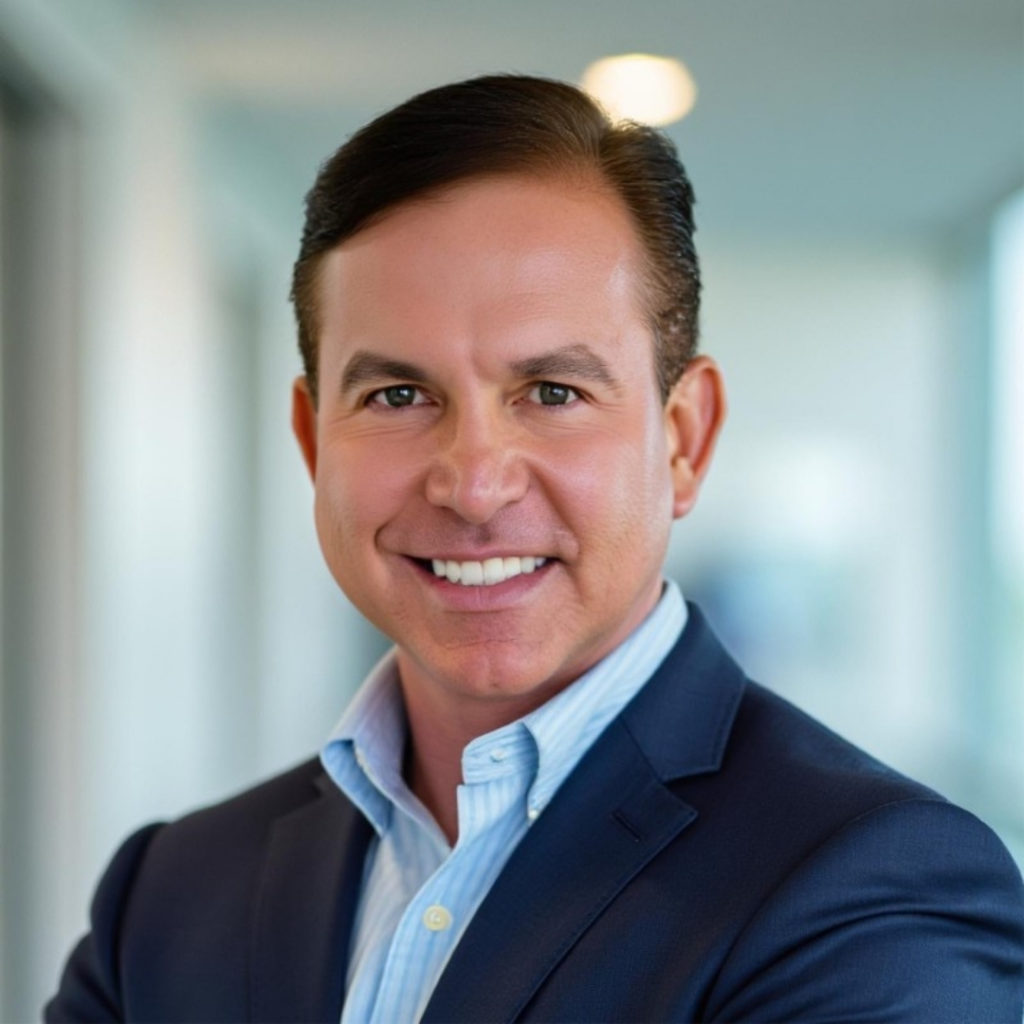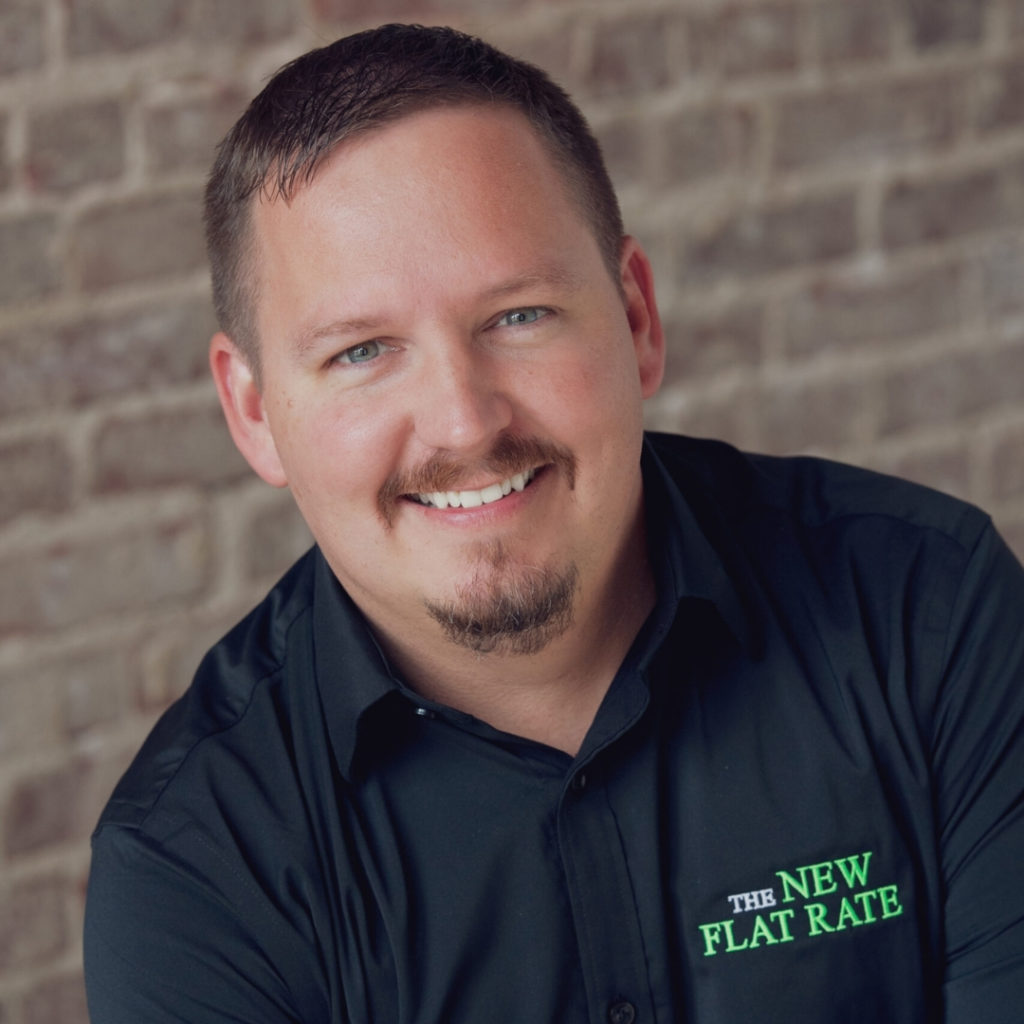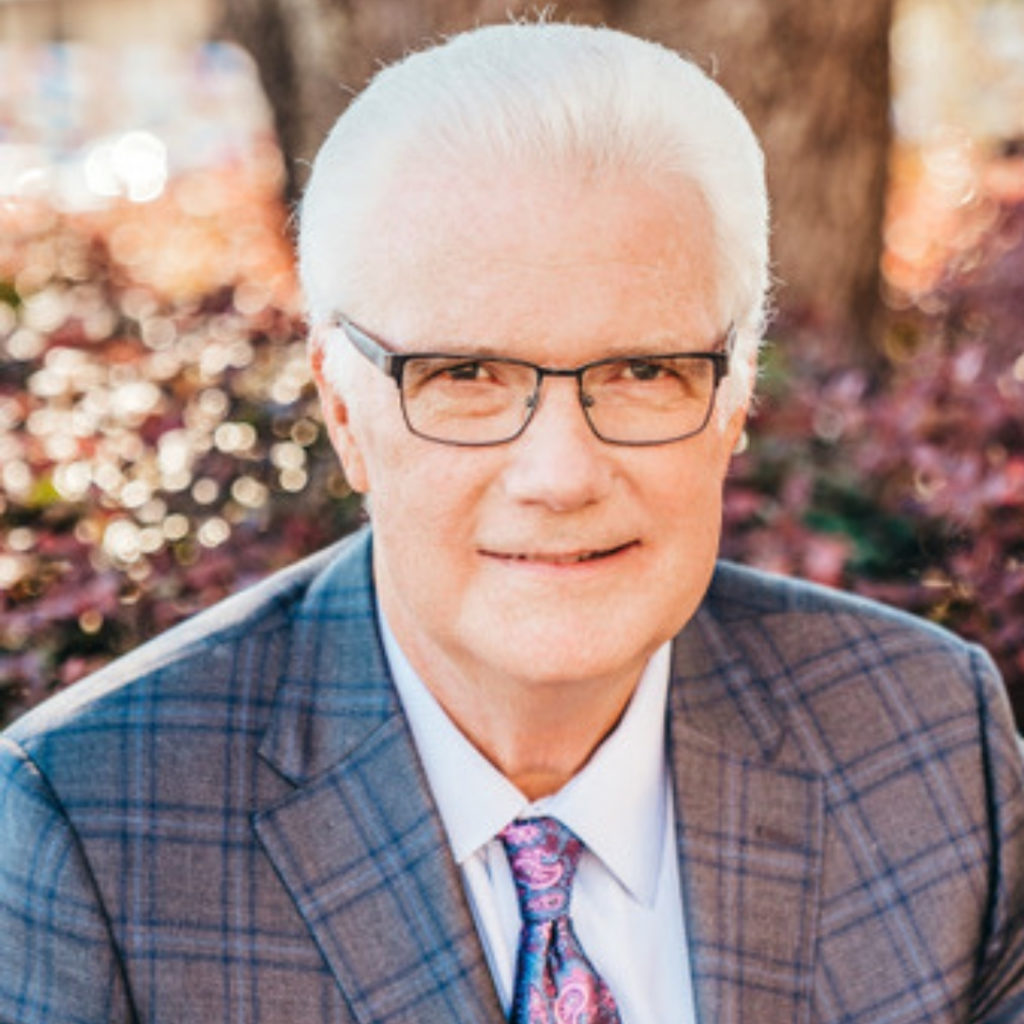Recent Updates
1491: The Rise of Humanness: Mastering AI, Uncertainty, and Personal Growth with Author and Coach Michael Schindler

Michael Schindler is a visionary strategist, acclaimed author, and high-performance coach recognized for empowering leaders and organizations to thrive in the age of AI. As the creator of the VUCA Max system and author of "The Rise of Humanness," Michael blends science, coaching, and authenticity to help people harness clarity, adaptability, and personal mission in a rapidly evolving world. His programs have guided over 7,000 individuals—veterans, business leaders, and those in transition—toward greater self-mastery, resilience, and transformational growth.
In this episode of Marketer of the Day, Michael shares his philosophy on using AI as a collaborative tool for strategic planning and personal advancement. He details the importance of mastering your "human operating system"—gaining clarity mentally, physically, spiritually, relationally, and financially—before layering on external success strategies. Michael demystifies common fears about AI, advocates for a balanced, mindful approach, and explains how meaningful growth starts with micro-wins and authentic self-reflection. Listeners will discover practical frameworks to navigate uncertainty, challenge self-limiting beliefs, and elevate their life and leadership in the AI era.
Quotes:
“AI should be your assistant, not your replacement. Use it to stimulate your thinking, but always bring your human authenticity and discernment.”
“You cannot program success on a dysfunctional human operating system. Start by clarifying what it means to be you in five areas: mind, body, spirit, relationships, and finances.”
“Transition hits us all differently. If you feel that emptiness, it's time to address your own operating system and get clarity.”
Resources:
- Visit Michael Schindler's Website
- Connect with Michael Schindler on Facebook
- Connect with Michael Schindler on LinkedIn
- Get "The Rise of Humanness" on Amazon
Podcast: Play in new window | Download (Duration: 26:33 — 36.5MB) | Embed
Subscribe: Apple Podcasts | Spotify | Amazon Music | iHeartRadio | Podchaser | RSS
1490: How to Live the Abundant Life: Mindset, Purpose, Giving, and Spiritual Fulfillment with Author and Consultant Carl Grant

Carl Grant III is an author, consultant, and speaker known for helping people and organizations unlock fulfillment through mindset, generosity, and purpose. As the creator of initiatives like the High Tech Prayer Breakfast and South by Southwest Sunday Service, and as a highly sought-after business development coach, Carl has empowered thousands to shift focus from self-centeredness to helping others. In “How to Live the Abundant Life,” Carl draws from years of experience—spanning personal trial, spiritual transformation, and business leadership—to provide a practical, inspiring blueprint for those seeking meaning, joy, and authentic success.
In this episode of Marketer of the Day, Carl explores what “abundance” means beyond finances, emphasizing how true fulfillment comes from helping others, finding and living your purpose, and embracing both spiritual and personal growth. He discusses overcoming failures, controlling your mindset, and changing negative thought patterns. Carl reveals how adversity and generosity fuel personal transformation, shares lessons learned from his faith journey, and offers actionable steps for listeners to shift from taking to giving—at home, at work, and in the community.
Quotes:
“Abundance isn’t about more stuff—it’s enjoying life fully by pouring into others and stepping into your purpose.”
“You have to take your mind off yourself. True transformation starts when you focus on helping others.”
“Giving without expecting anything in return creates more blessings and opportunities than you can imagine.”
Resources:
Podcast: Play in new window | Download (Duration: 31:14 — 42.9MB) | Embed
Subscribe: Apple Podcasts | Spotify | Amazon Music | iHeartRadio | Podchaser | RSS
1489: Beyond the Algorithm: Authentic Networking and Growth on LinkedIn with Natalie Berthe

Natalie Berthe is a startup and growth strategist, serial founder, and the author of “Love Your LinkedIn Profile.” Natalie specializes in helping entrepreneurs, from seasoned executives to emerging founders, transform messy, complex professional challenges into clear, actionable solutions. Drawing on over a decade of experience on LinkedIn, she guides clients to optimize their profiles, build credibility, and attract new opportunities without jargon or gatekeeping. Natalie’s approach fuses practical business sense with authentic personal branding, encouraging professionals to tell their true story and network with intention in the digital age. Her latest book, “Love Your LinkedIn Profile: How to Build a Kick-Ass Profile, Elevate Your Personal Brand, and Get Results,” is both a practical guide and a call to embrace authenticity online.
In this episode of Marketer of the Day, Natalie shares her journey from early LinkedIn adopter to recognized profile optimization expert. She explores the realities of LinkedIn’s evolving AI-driven algorithm, the impact of authenticity versus “playing to the algorithm,” and the critical role of relationships and nuance on the platform. Natalie uncovers the pitfalls of generic profiles, explains how to optimize for both AI and human connection, and discusses systemic inequities in social media reach. Packed with actionable advice, her insights help listeners cut through overwhelm, craft their unique professional narrative, and take control of their digital presence. You’ll leave empowered to build an authentic profile, engage purposefully, and leverage LinkedIn for real-world opportunities.
Quotes:
“Once you set up your profile properly…and you've got your main content, the only thing you should be doing quarterly is adding whatever you accomplished during the previous quarter.”
“LinkedIn is really about developing conversations and relationships. They're legit... that's why you make more money or find bigger opportunities.”
“If you're speaking to everyone, you're speaking to no one. Build your profile for you—let your authenticity do the attracting and the repelling.”
Resources:
- Visit Natalie Berthe’s Website
- Get “Love Your LinkedIn Profile” on Amazon
- Connect with Natalie Berthe on LinkedIn
- Watch and follow Natalie Berthe on TikTok
- Connect with Natalie Berthe on Facebook
Podcast: Play in new window | Download (Duration: 37:04 — 50.9MB) | Embed
Subscribe: Apple Podcasts | Spotify | Amazon Music | iHeartRadio | Podchaser | RSS
1488: Kettle Pours a Universe: Explore Mindfulness, Creativity, and Interconnectedness to Transform Your Life with Meditation Teacher, Author, and Musician Johnny Scifo

Johnny Scifo is an award-winning author, musician, and meditation teacher, renowned for blending neuroscience, spiritual practice, and creative artistry. From touring musician to founder of Yoga Sound School, Johnny has empowered Ivy League students, wellness professionals, and everyday seekers to cultivate awareness, resilience, and self-connection. His unique approach unites Eastern and Western philosophies, encouraging people to be present, embrace experimentation, and honor their interconnectedness. Johnny’s latest work, "The Kettle Pours a Universe," invites readers into a lyrical exploration of mindfulness, creativity, and the beauty of interwoven lives.
In this episode of Marketer of the Day, Johnny discusses his transformative journey, the role of daily habits and mindfulness meditation, and the lessons found in both failure and artistic pursuit. He shares the pitfalls of chasing fleeting trends versus finding authentic creative expression. Johnny offers practical meditation guidance, explains how creativity is a process—not just a product—and highlights why honoring elders and community is central to lasting happiness. You’ll come away inspired to experiment, reflect, and connect more deeply with yourself and others.
Quotes:
“Art is the byproduct of a creative process. If we focus only on the end goal, we get stuck—take a break, reflect, and creativity returns.”
“It’s not about suppressing thoughts, but seeing where your energy is going. Meditation helps you notice, honor, and let go.”
“Interconnectedness—remembering our stories are all woven together—is the lesson that leads to a fuller, happier life.”
Resources:
- Visit Johnny Scifo’s Website
- Follow Johnny Scifo on Instagram
- Follow Johnny Scifo on Insight Timer
- Follow Johnny Scifo on Substack
- Get "The Kettle Pours a Universe: A Novella" on Amazon
Podcast: Play in new window | Download (Duration: 32:10 — 44.2MB) | Embed
Subscribe: Apple Podcasts | Spotify | Amazon Music | iHeartRadio | Podchaser | RSS
1487: Maximize Home Service Profits: Deliver Options That Reduce Risk and Boost Sales with Matt Koop

Matt Koop, Vice President and Founder of The New Flat Rate, brings decades of experience in home service contracting, having worked his way up from service technician roles in plumbing, electrical, and HVAC. Through deep industry insight and innovation, Matt helps contractors maximize profits, build customer trust, and prevent burnout by adopting modern, proactive service strategies. His company’s automatic presentation systems empower contractors to close jobs faster, provide consistent pricing, and offer premium options that address customers’ long-term needs—not just immediate fixes. Matt’s mission centers on empowering contractors to support their families, maintain stable finances, and do work they are proud of, all while delivering real value to homeowners.
In this episode of Marketer of the Day, Matt shares how the information age changed the home services landscape—forcing contractors to adapt as savvy customers search for answers online and question traditional approaches. He explains the pitfalls of product-focused “good, better, best” options and introduces his proven system for presenting five tailored options for every job, ensuring both customer satisfaction and increased profitability. Matt’s practical stories highlight the importance of proactive solutions, transparent communication, and aligning pricing with true business costs to create stable, thriving businesses that support contractors and their families.
Quotes:
“People want to buy the future. It’s not just about solving a current problem, but about preventing the next one.”
“In a confused mind, the answer is always no. Our job isn’t just to educate, but to present options customers can understand and choose confidently.”
“What got you here won’t get you there. Contractors must adapt to today’s market and rethink how they deliver value.”
Resources:
- Visit Matt Koop’s Website
- Connect with Matt Koop on LinkedIn
- Connect with Mark Koop on Facebook
- Follow Matt Koop on Instagram
Podcast: Play in new window | Download (Duration: 36:29 — 50.1MB) | Embed
Subscribe: Apple Podcasts | Spotify | Amazon Music | iHeartRadio | Podchaser | RSS
1486: Live Without Regrets: Build Resilience and Lead with Authenticity with Leadership Coach Ali Cammelletti

Ali Cammelletti, founder of SparkYourMindset.com, brings over 30 years of experience in hospitality, leadership, and sales. She helps business owners and leaders build resilience, strengthen team culture, and improve performance through mindset work, coaching, and team-building programs. With a focus on balance, organization, and emotional intelligence, Ali teaches leaders how to stay motivated, market consistently, and avoid burnout while creating the life and business they truly want. Her philosophy centers on living without regrets and taking action today instead of waiting for the “right time.”
In this episode of Marketer of the Day, Ali shares how entrepreneurs can stay grounded, embrace both their masculine drive and feminine empathy, and lead with intention. She talks about the importance of structure, color-coded time blocking, manifesting goals, and continuous learning. You’ll learn how to balance discipline with self-care, lead with authenticity, and align your mindset with your mission so you can grow your business and your life with purpose.
Quotes:
“You can’t fake manifesting. You have to believe it in your heart, set your goals, and take action. People can see right through anything that isn’t real.”
“Not everybody’s strength is to be an entrepreneur. It takes patience, resilience, and a willingness to keep marketing yourself even when you’re tired.”
“When I am my true, authentic self and let things flow, the right opportunities show up. You can’t put a dollar amount on every interaction.”
“I live without regrets. Life is short, and it’s up to us to execute in a way that honors who we are and lets us experience what truly matters.”
Resources:
- Connect with Ali Cammelletti on LinkedIn
- Connect with Ali Cammelletti on Facebook
- Follow Ali Cammelletti on Instagram
- Watch Ali Cammellettie on YouTube
- Leadership starts with inner work first
Podcast: Play in new window | Download (Duration: 30:19 — 41.6MB) | Embed
Subscribe: Apple Podcasts | Spotify | Amazon Music | iHeartRadio | Podchaser | RSS
1485: From Quiz Funnels to Agentic AI: Build Personalized Systems that Sell for You with Business Strategist Maeve Ferguson

Maeve Ferguson is a business strategist and creator of The Client Engine, a proven system that helps authors, coaches, and consultants transform their intellectual property into high-converting diagnostic funnels. She guides experts to turn their ideas into assets that prequalify leads, personalize marketing, and generate high-ticket sales automatically. Maeve shares how customized experiences help businesses stand out amid generic AI content and noisy online competition. Her system allows business owners to focus on their strengths while using automation to drive results.
In this episode of Marketer of the Day, Maeve explains how diagnostic funnels use personalized questions and data to collapse the “know, like, and trust” factor into minutes. She reveals how agentic AI tools analyze sales data, improve copy, and even scout speaking opportunities by syncing with a calendar. Listeners will learn how to replace outdated lead magnets with dynamic, self-optimizing systems that attract ideal clients. Maeve also discusses how her team helps experts scale impact through automation that remembers, nurtures, and sells for them.
Quotes:
“When you personalize every step of the journey, your leads stop feeling sold to and start feeling understood. That’s where real conversion begins.”
“AI isn’t here to replace your message. It’s here to amplify it, but only if you feed it the right strategy and structure.”
“A quiz or diagnostic isn’t just a marketing trick. It’s a mirror that shows your audience exactly what they need and how you can help.”
“Most entrepreneurs chase leads. Smart ones build systems that attract, nurture, and convert automatically.”
Resources:
- Connect with Maeve Ferguson on LinkedIn
- Connect with Maeve Ferguson on Facebook
- Follow Maeve Ferguson on Instagram
- Watch Maeve Ferguson on YouTube
- You’ve built the body of work. Now it’s time to build the engine that sells it.
Podcast: Play in new window | Download (Duration: 29:26 — 40.4MB) | Embed
Subscribe: Apple Podcasts | Spotify | Amazon Music | iHeartRadio | Podchaser | RSS
1484: Mercy Moments: Rekindle Your Passion for God and Build a Life of Lasting Faith with Pastor and Author Brian Kinsey

Brian Kinsey has spent over 50 years guiding people toward a deeper connection with God. As a pastor, life coach, and author, he brings clarity and structure to spiritual growth through daily devotion. In his book Mercy Moments: 40 Days to Rekindle Your Passion for God, he introduces a simple daily plan called the “Rule of Five,” built around reading, praying, writing, speaking, and acting on God’s Word. He shows how small, consistent steps transform lives by helping believers experience God’s mercy and discover their purpose.
In this episode of Marketer of the Day, Brian shares how daily discipline leads to lasting transformation. He explains why 40 days is the ideal time to build a spiritual habit and how mercy, not perfection, sustains faith. Drawing from his decades in ministry and mentorship, Brian encourages listeners to move beyond inspiration into practical action—helping others, showing mercy, and focusing on the future rather than the past.
Quotes:
“You are one prophetic word away from your breakthrough and deliverance.”
“If you’ll meet God every day, He will show you how to live the life you were meant to live.”
“Passion fades when life hits hard, but mercy rekindles the fire.”
“Your identity is not your past. Your identity is your future.”
Resources:
- Visit Brian Kinsey’s Website
- Get "Mercy Moments: 40 Days to Rekindle Your Passion for God" on Amazon
- Connect with Brian Kinsey on Facebook
- Connect with Brian Kinsey on LinkedIn
Podcast: Play in new window | Download (Duration: 37:16 — 51.2MB) | Embed
Subscribe: Apple Podcasts | Spotify | Amazon Music | iHeartRadio | Podchaser | RSS
1483: Magic Mines: Discover the True Meaning of Love Beyond Appearances with Poet and Disability Advocate Mandeep Lotta

Mandeep Lotta is a Kenyan-born poet and author who overcame physical impairment and blindness to share a message of compassion and human connection through his poetry collections Magic mines: The Treasure of Love. His work explores how love is often misunderstood and commodified, reminding readers to slow down, understand one another, and let love grow naturally. Through his personal story of resilience, he shows how disability does not define one’s capacity to inspire and create meaning.
In this episode of Marketer of the Day, Mandeep discusses how life experiences, pain, and perseverance shape his poetry and worldview. He shares insights on the misconceptions people have about relationships, the importance of openness and communication, and how ambition fuels purpose even through hardship. His journey encourages listeners to embrace their vulnerabilities, own their stories, and find fulfillment through empathy and creativity.
Quotes:
“Love grows when you give it time and space to breathe.”
“I own my blindness. It’s not a weakness; it’s my identity.”
“Life is the vehicle. Ambition is the fuel.”
“When you open up, you give others permission to do the same.”
Resources:
Podcast: Play in new window | Download (Duration: 24:53 — 34.2MB) | Embed
Subscribe: Apple Podcasts | Spotify | Amazon Music | iHeartRadio | Podchaser | RSS
1482: Garden for Everyone: Create a Calming, Productive Space and Gain Confidence with Author and Gardening Enthusiast Susan Bernauer

Susan Bernauer, author of Gardener’s Journal: Journey into the World of Gardening, shares how anyone can begin growing plants, whether on a small balcony or in a large backyard. She explains that gardening is less about expertise and more about curiosity, patience, and observation. Her book offers practical guidance for beginners, covering seed starting, soil care, composting, and how to record plant notes to remember what works year after year. She emphasizes that gardening can be both educational and therapeutic, helping people reconnect with nature and relieve stress.
In this episode of Marketer of the Day, Susan talks about how gardening evolved from a childhood pastime into a lifelong passion focused on shade gardens and succulents. She explains how to choose plants that fit your space and lifestyle, avoid common mistakes, and turn your gardening into a creative project instead of a chore. Her spiral-bound version of the Gardener’s Journal even allows you to cut out pages and create a custom notebook to track your plants, making it a hands-on guide for personal growth through gardening.
Quotes:
“If you’re caring for a plant, you’re already a gardener. It’s about learning and trying, not perfection.”
“Gardening is a journey. Even advanced gardeners don’t know everything. You learn through trial and error.”
“When life gets stressful, working in the garden helps you relax and reconnect with yourself.”
“Write down what works for you. Next year, you’ll be ahead instead of starting over.”
Resources:
- Connect with Susan Bernauer on Facebook
- Get "Gardener's Journal: Journey into the World of Gardening" Amazon
Podcast: Play in new window | Download (Duration: 22:34 — 31.0MB) | Embed
Subscribe: Apple Podcasts | Spotify | Amazon Music | iHeartRadio | Podchaser | RSS
